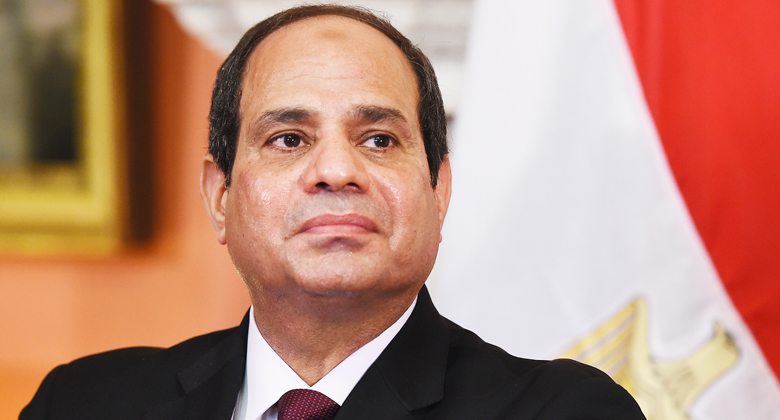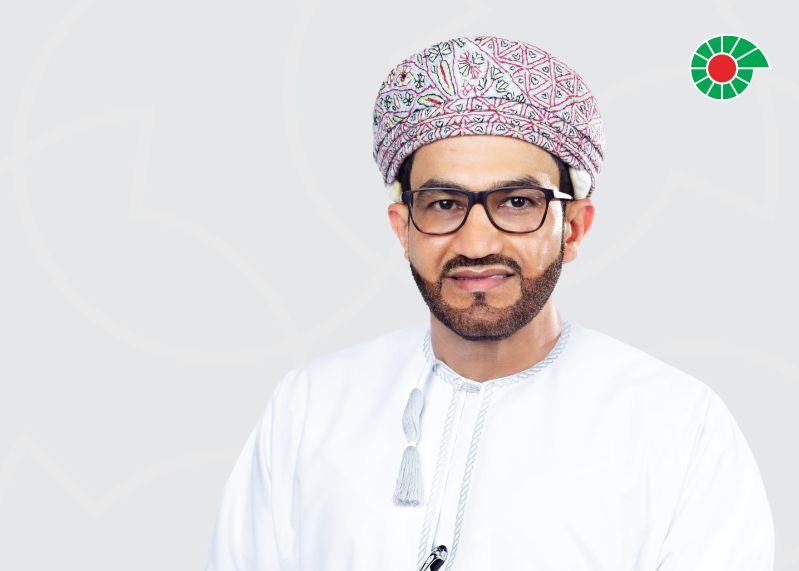

Cairo may find itself under immense social pressure in 2016, unless it is able to tackle major concerns such as the housing shortage and a dwindling labour market
In early December, the Egyptian authorities imposed a gagging order on reports relating to a recently signed deal with Russian firm Rosatom to develop a nuclear power plant.
For many, the gagging order signified a return to the sort of controls that were imposed on the local media when former president Hosni Mubarak was in power.
Egypt has been a difficult place for journalists in the past three years, says Ahmed Ghoneim, North Africa and Egypt specialist at UK-based research centre Other Solutions.
President Abdul Fattah al-Sisi has come under immense criticism from international human rights organisations, which have condemned the governments crackdown on both Islamist and liberal opposition activists and commentators. Estimates suggest that up to 20,000 people have been imprisoned under national security laws since Al-Sisi took office in 2013.
As the five-year anniversary of Egypts 2011 uprising nears on 25 January, there have been calls for protesters to return to Tahrir Square and once again demand the social changes that many feel have yet to materialise.
Any mass protests against Al-Sisi and his government are unlikely, however, say analysts, as the armed forces continue to enjoy support from large portions of Egypts poorest and wealthiest populations.
Calming the masses
For ordinary Egyptians, jobs, housing and security remain their major concerns. Al-Sisi has made these three issues central priorities in his self-proclaimed economic renaissance.
A housing shortage means many of the countrys poorest struggle to find both access to the finance required for housing and the housing units themselves. In early December, MEED reported that Egypt was set to receive the first instalment of a $500m loan from the Washington-based World Bank.
According to local sources, the Ministry for Housing, Utilities & Urban Communities has finished negotiations with the World Bank and is set to receive $125m for its social housing project in the first weeks of 2016. It has not been disclosed when Cairo will receive the remaining funds.
Egypt must pay the loan back over the course of five years. It plans to use the funds to press ahead with several affordable and low-income housing schemes across the country.
The social housing project was launched in 2014 to tackle the housing shortage. Egypt needs 500,000 to 600,000 new housing units annually, and has set aside £E13bn ($1.6bn) for low-income housing schemes. It also hopes to attract the private sector through revenue sharing and other agreements.
Million homes
The proposed One Million Homes project was within the governments plans to increase the number of available dwelling units in Egypt. But the scheme has suffered major delays since it was announced in 2014. It was recently announced that the project is now under the full control of the Ministry of Housing and will be implemented by the government.
The housing authoritys inability to agree terms with the UAEs Arabtec and other developers in order to press ahead with delivering the one million units in the next five years has meant the scheme has turned into a policy rather than a single project.
Speaking at MEEDs Egypt Megaprojects conference in Cairo in December, Minister of Housing Mostafa Madbouly said the agreements signed were not binding and that the government will now look to press ahead itself with the programme.
He added that 25 per cent of the scheme has already been completed and indicated that the programme is no longer being approached as a single scheme. Units already completed will be counted as part of the one million target.
Although the authorities have been keen to continue its rhetorical campaign, Al-Sisi may find the populations patience wears thin in the coming years, as the disparity between the delivery of affordable units and access to finance continues to widen.
Housing could become the governments biggest obstacle in continuing to gather the support required for it to carry on with economic plans and consolidate its grip on power.
Employment concerns
Political dissent is also likely to be stirred up by a dwindling labour market that has shown little improvement since the Egypt Economic Development Conference in Sharm el-Sheikh last March.
About 60 per cent of Egypts labour market is made up of the informal sector. The majority of Egyptians work on a cash-in-hand basis, with little to no access to the welfare state. Adding to the employment woes, a large percentage of the working population is highly dependent on tourism.
Tourism contributed $16.5bn to Egypts economy in 2014, making up 12.8 per cent of GDP. The dramatic fall in the number of people visiting the country and its iconic attractions has dented Egypts tourism ambitions. The government is targeting 20 million visitors by 2020. In 2010, the country attracted 14.7 million tourists, but by 2014, this number stood at just 9.9 million.
A damaged tourism sector hurts the economy and foreign currency revenues. As the [tourism] sector falls, so do jobs related to that sector, says Ghoneim. Too many Egyptians depend on tourism. The mismanagement of the Metrojet [plane] crash [in Sharm el-Sheikh] coupled with the public relations disaster that saw Mexican visitors killed [means] many Egyptians will look at the government as failing to protect one of the countrys most important industries.
Political activism
Although all the components that were required in 2011 and 2013 to gather the popular support against the [two previous] governments, which led to mass protests and calls for political change, exist, the means by which people and activists can achieve these goals are not as accessible, says Wael Eskandar, an independent political activist, who says he does not belong to any group for security reasons.
Eskandar tells MEED the government has undertaken an intellectual and media campaign to oppress all forms of political and social dissent. In late December, an independent publishing house (Merit Publishing) and an art gallery (Townhouse) were shut down by the authorities in what activists have called a continued clampdown on all forms of political and social expression.
State television has also been at the forefront of the governments campaign to ensure the economic plan is widely accepted as an ongoing success, says Eskandar.
Very little regarding the currency crisis and the inability of the government to offer the right investment environment is discussed in state media and many private outlets. [Memorandums of understanding] are treated as contract signings and any criticism is deemed as anti-Egyptian.
Backing Al-Sisi
Nonetheless Al-Sisis government continues to enjoy wide-ranging support from many groups of society.
Many among Egypts middle class continue to rally support for the military government in the hope for a return to the stability enjoyed during the Mubarak era. Large portions of the countrys poorest, particularly those living in rural areas, romanticise the military rule of Al-Sisi; the notion of a strong leader continues to play in his favour.
With the five-year anniversary of the anti-Mubarak uprising fast approaching, it is widely accepted across Egypt that dissent is on the rise again, particularly among a disenfranchised youth. Regional developments, security concerns and the rise of Islamic fundamentalism, including the civil wars in Libya and Syria, mean the government is able to use national security as a means to justify suppressing political freedoms and as a root for rallying popular support.
Nonetheless if Egypts economy fails to improve and dissent among the masses grows, Al-Sisi will find it difficult to apply subsidy and monetary reforms.
Much needed and socially sensitive subsidy cuts have already caused concerns for the government. As the investment community calls for a devaluation of the local currency, rising living costs will mean Cairo may find itself under immense social pressure in the next year, unless it is able to provide some short-term relief.
Egypts rising cost of living
President Abdul Fattah al-Sisis government is faced with a major dilemma that could undermine its grip on power and popular support.
Rising living costs and declining living standards continue to put pressure on what some analysts have called a social ticking bomb.
Subsidy cuts over the past 18 months have significantly increased water, electricity and, more significantly, fuel prices.
The governments policy on fuel subsidies, which started in mid-2014, is set to continue, with the finance ministrys 2015 budget statement saying the efforts to eliminate fuel subsidies will continue. To mitigate the effects of subsidy cuts on the poorest segments of society, the ministry says it will continue to provide cash transfers to the most vulnerable, although most Egyptians working in the informal sector find they do not have access to this cash.
The government has supported the central bank in order to further devalue the Egyptian pound.
A devaluation of the currency means a favourable environment for foreign investors, which will lead to long-term gains for the wider economy. But a weaker pound makes imports more expensive, meaning ordinary Egyptians may find themselves paying more for daily goods.
You might also like...

Microsoft invests $1.5bn in Abu Dhabi's G42
16 April 2024

Roshn and Dar Al Arkan sign Sedra deal
16 April 2024

Summit opens with promise to keep Cop28 commitment
16 April 2024

PDO gets first Omani managing director
16 April 2024
A MEED Subscription...
Subscribe or upgrade your current MEED.com package to support your strategic planning with the MENA region’s best source of business information. Proceed to our online shop below to find out more about the features in each package.








